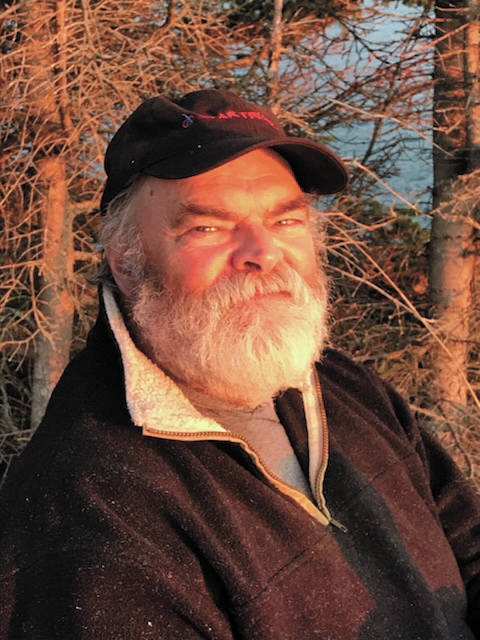Homer Mayor Ken Castner is looking to continue serving the city in that capacity, and is running for reelection to that seat in the October municipal election. If reelected, it would be his second term as mayor.
Born in Portland, Maine, Castner attended Hampshire College, an experimental college started in 1970 in Amherst, Massachusetts for a year. He moved to Homer in 1973 with his wife, writer Nancy Lord.
He and Lord bought Quiet Sports, an outdoor recreation supply store. They sold it in 1978 to former legislator Gail Phillips. Castner has also worked as a commercial fisherman and a construction estimator, first for Tony Neal and later for Jay-Brant Construction. He now has his own business, Tonsina LLC.
Castner has served on several city committees, including several incarnations of the sewer and water rate committee, the Public Safety Building Review Committee and the Homer Public Library Building Committee.
He helped start the Homer Foundation in 1991.
If reelected, this would be Castner’s second term as Homer’s mayor.
Question: What made you decide to run for Homer mayor again?
Answer: Among my reasons for first running, I had hoped to use the position of mayor to work from the inside to address the fiscal problems of the city.
In the last two years we were able to implement a two-year budget process, close out old capital projects, and restore funding of the water and sewer (HAWSP) fund. However, meaningful quarterly financial reporting, reserve fund policy, timely and useful auditing, and corrections to the water and sewer tariffs have eluded us due to a series of other time-consuming events.
I would like to have another term to finish that work.
Q: Other than the issues caused by the ongoing COVID-19 pandemic, what do you see as the three biggest issues facing the city currently?
A: As mentioned in the first question, the city needs to get its financial house in order. Second, we need to be prepared to advance and administer the planned $120-million deep-water port. Third, the city needs to begin expanding services into the annexed areas. This requires a willingness to do more than study options.
Q: What could Homer be doing better in terms of handling and mitigating the COVID-19 pandemic (if anything)?
A: In my opinion, and given the few tools the elected government has, the key is in community tolerance and cooperation. The businesses in town will establish the rules they feel necessary to protect their workers and customers and it is up to us all to respect those requirements. The Unified Command has done a very good job in placing educational messaging. Early this year the Council established their priorities for 2020, but given the economic and social consequences of COVID, there should be a reexamination of those priorities.
Q: What will be the biggest priority/priorities heading into the city’s next budget cycle?
A: There is another year to go in this budget cycle and adjustments can be easily made to reflect the new fiscal reality. The city also has a $4 million reserve for emergencies that can be utilized to lessen the loss of sales tax revenue. An economic recovery plan should be an immediate task as we enter the fourth quarter of the calendar year.
Q: What leadership skills do you bring to the table that you think would specifically aid you in being an effective mayor?
A: First and foremost, I’m a numbers person. I make my living doing cost analysis with spread sheet support. Second, local government is established to serve the needs of the citizens. I promised, in 2018, to be a “Citizen’s Mayor” and I have been an advocate for, and responsive to, those who have had difficulties with being heard or with government processes. The council, with my leadership, has become much more collaborative with the vast majority of decisions being reached with unanimity.
Q: What is your favorite book and why?
A: “Fifth Business” by Robertson Davies (Penguin/Random House, 1970). It all started with a snowball … This book helped me polish my critical thinking skills about 40 years ago. It explores causal effects and expands the possibilities of “if/then” analysis. It accomplishes that through the narration of a fictional character with an interesting tale. It is a terrific piece of literature and has, since the time I first read it, sat at the top of my list of favorites.


